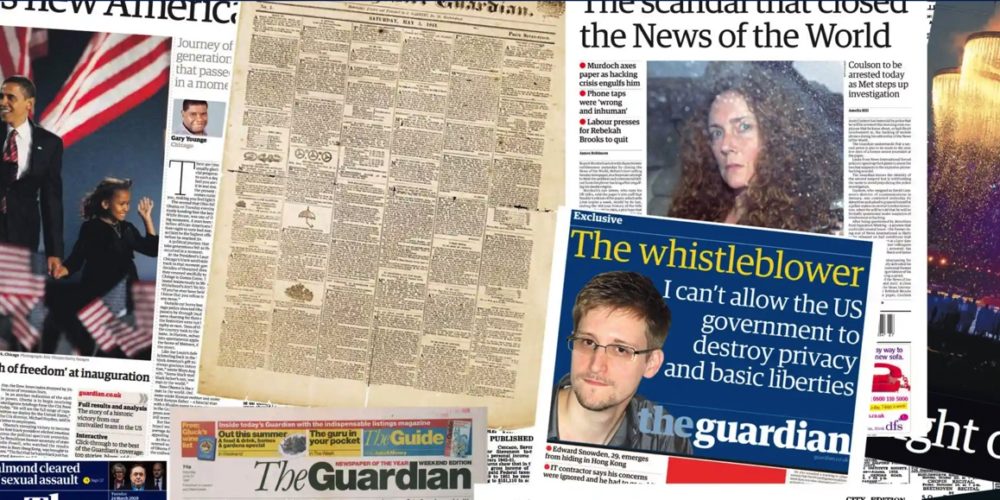What does it take to become a 200-year organization?

The Guardian newspaper is 200 years old. I first started reading it in the first year of my degree course in London. It was not normal reading for a student of economics and business – which is precisely why I was attracted to it. I’ve never stopped reading it, decades later, even from a different continent.
The Manchester Guardian started life in May 1821. How long ago is that? Well, it was the year Napoleon died in exile. The rich went around on horses, the poor walked. Electric power was still somewhere in the future. The Guardian points out that it is older than Germany, fish ’n’ chips and all but six FTSE 100 companies.
It’s a very long time, 200 years. Most organizations would struggle to last a tenth of that duration. So how is it done? The path has not always been easy – the newspaper has teetered on the edge of closure many times.
Let me point out three lessons from the Guardian’s journey.
First, it has always forged a special relationship with its readers. This, fundamentally, is at the heart of business longevity; your customers must protect you, and they will only do so if you mean something special to them. I am still connected to the Guardian because it provides unusual perspectives and does so with both heart and style.
A few years ago the organization faced an existential crisis. Print revenues were tanking; digital was yet to contribute meaningfully. The Guardian did something unusual: in addition to selling subscriptions, it reached out to readers to become members – to support its journalism by making contributions. Many observers laughed at the time, but funding has since come from 1.5 million supporters across 180 countries. It seems there are many readers who want to protect the Guardian.
Such a relationship does not come about from nothing, and that brings me to my second driver of longevity: values. New editors at this organization are told to do “as heretofore” – meaning there is a tradition to preserve. The Guardian has had a clear purpose for at least the past century: upholding honesty, courage, integrity and a sense of duty to the reader; and always being editorially led. Principle before profit, in other words.
Most organizations say much the same about themselves, please note; very few can live up to those noble words. The Guardian took it a step further: it protected its integrity and independence by creating a unique structure. It is owned by a trust, and that gives it unusual shelter from the pressures of profit-chasing, click-baiting and capture by tycoons and politicos.
The third factor behind two centuries of life? Adaptability. The Guardian has had to undergo wrenching change many times: moving its base from Manchester to London; using the internet to go global; taking the bold leap to jump from a print-centred operation to something digital-and-mobile-first; and lately, grappling with the economics of delivering news in a social-media-led world.
Had the Guardian stayed stuck in its ways for prolonged periods, there would be nothing to discuss now. I, too, for all my love of its content, would have moved on. I am still in because I can read it on my smartphone – and because the digital product is convenient as well as stylish.
Indeed, as the organization celebrates its milestone, another double-centurion has just tumbled. Debenhams, the 240-year-old department store chain, has closed its last store. A shopper (interviewed by the Guardian) outside one of the last Debenhams stores recently, offered this insight: “When people were riding around on horses and carts they had an attachment to them. But then cars came along. Modern technology is driving this. Change is not always a bad thing. It is just different.”
That’s put as well put as any strategist could say it; and better than most chairmen and CEOs would. We, all of us, have to be ready to embrace change – even though it is painful and wrenching. We all get comfortable and attached to our norms; but the forward-looking must be ready to read the signs and start afresh.
Survival and longevity are not assured for anyone. The three factors I’ve discussed above – a healthy and evolving relationship with customers, clear and credible values, and a willingness to change shape and form in order to stay relevant – can give any organization a chance to hang around across generations.
It’s just a chance, mind. The Guardian might still tumble, for much turmoil lies in store for this industry. But with 240 million unique monthly web visitors, and £1bn in the bank, it has a fighting chance.
(Sunday Nation, 23 May 2021)

Buy Sunny Bindra's new book
The X in CX
here »
Popular Posts
- The pause that saves usJune 8, 2025
- Where are you rushing to—your funeral?June 29, 2025
- How to spot a real thinkerJune 15, 2025
- Built the app, forgot the flowJune 22, 2025
- The first push is the hardestJune 1, 2025















